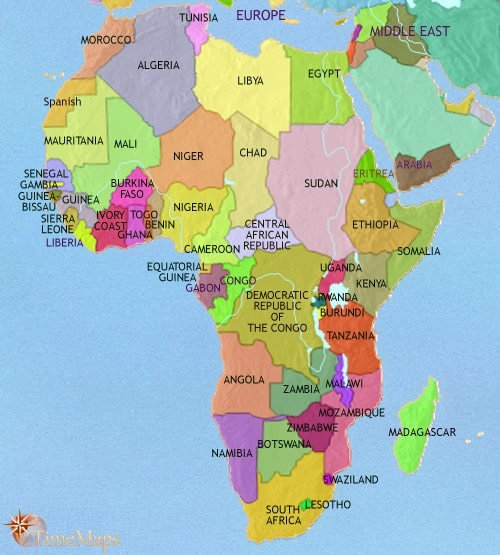5 reasons why Africa is a real place
1. Geography
Africa is a continent that is composed of 63 independent political territories or countries, Africa as a continent represents the largest of the great southward projections from the main mass of Earth’s surface. Within its normal outline, it covers an area of 30,368,609 km2. The highest mountain in Africa is Kilimanjaro and its largest lake is Lake Victoria.
Africa shares a sea border with Europe by the Meditarean Sea, and Asia by the Red Sea. It is also joined to Asia at its northeast end through the Isthmus of Suez which is 135km wide. The Sinai Peninsula is also considered an Africa territory based on geopolitical interests.
Africa has a structural line that shows an east-west feature, majorly across the eastern hemisphere. With an average elevation of 600m or 2000ft, Africa has an elevation that is similar to that of North and South America.
2. Population
Based on Population, the continent of Africa has the second-highest population in the world, with an estimated population of 1.2 billion people as of 2020. Africa is a combination of more than 50 independent states.
Africa has a high population of young people with a report released in 2019 suggesting that 41% of the African populace comprises young people under the age of 15.
3. Wildlife
The word fauna is used to describe wildlife. Africa’s wildlife refers to Africa’s animals that are living within the continent or are found in African seas and islands.
Africa’s location in the tropics and north-south of the equator creates a conducive environment for rich wildlife.
Africa serves as home to famous animals such as Lions, Cheetahs, Rhinos, Giraffes, Antelope, Hippos, Leopards, Zebras, and Elephants among other hundreds of wildlife resources, making it the continent with the best wildlife on earth. Africa’s Fauna is categorized into the following:
Invertebrates
Although there is little information on African Invertebrates, it is estimated that Africa has more than 100,000 species of insects, Butterflies, and marine snails.
Fish
Africa has the highest number of freshwater fish with more than 3000 species. East Africa lakes such as Lake Victoria, Malawi, and Tanganyika have been described as the centers of fish biodiversity.
Reptiles
Madagascar has been described as the center of Chameleon diversity in the world. Popular Snake species in Africa include:
- Eastern Green Mamba
- Egyptian Cobra
- Gaboon Viper
- Black Mamba
- Boomslang
- Cape Cobra
- Carpet Viper
- Puff Adderr
Lizards include
- Agama armata.
- Broadley’s flat lizard.
- Cape dwarf gecko.
- Cape flat lizard.
- Bibron’s thick-toed gecko.
- Cape grass lizard.
- Common flat lizard.
- Dwarf flat lizard.
Birds
There are more than 2600 species of birds in Africa with about 1600 of these birds passerines. Africa has several endemic birds including Ostriches, Messitte, Sunbirds, guinea fowl, and mousebirds.
Mammals
Africa has a wide variety of Mammal species, about 1200 species of mammals live in Africa. Mountain gorillas, Elephants, etc., of Carnivores, there are more than 60 species, they include lions, hyenas, leopards, cheetahs, serval, and African wild dogs.
4. Black (Race)
Skin color has been increasingly adopted as a means to describe the social differences between people. Africa is recognized as the origin of man or the Hominidae.
Dark skin is the most dominant skin color in most of Africa. Africa has the largest morphological variation varying from the tallest to the shortest people.
5. An Old History
Africa has been described as the home to the Hominidae which is the taxonomical family from which humans are originated. Archaeological research suggests that Africa has been home to humans for more than 4,000,000 years ago.
Throughout the history of humans, the continent of Africa has witnessed significant in and out movements, especially along with the horn of Africa, Sinai Peninsula, Strait of Gibraltar, Nile, and the Red Sea.
Abbey Johnson has a Masters degree as an engineer and has over 3 years of teaching and research experience. He is happiest when on a bike and is also interested in electric energy and computer Science.

